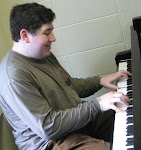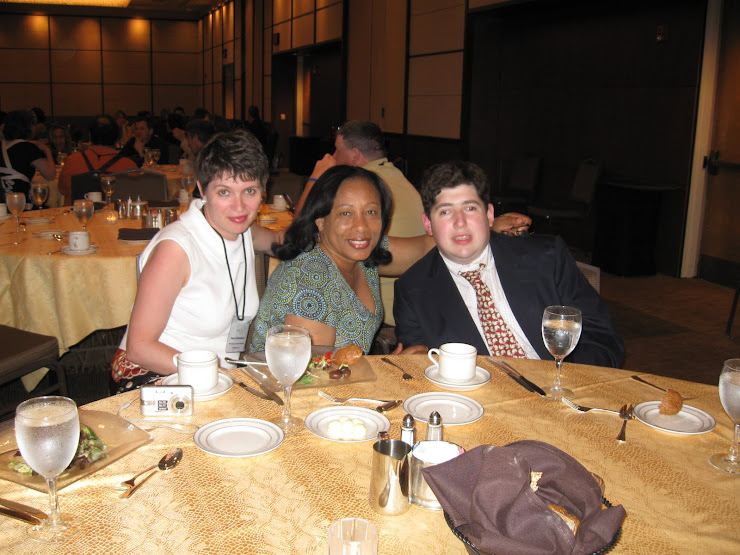Hi there, what do you think people who are blind do when they want to go to the movies? (In fact, do we even go and “see” movies at all?) Recently we have been using technology called descriptive video services, where a prerecorded description of the movie can be heard, when in the theater, by listening to a special pair of headphones. However, today I am feeling very frustrated: I tried to “watch” a movie today at Lincoln Square Theater (68th street and Broadway in Manhattan) and the headphones did not work. I tried three different pairs and all I heard was static. This problem is compounded by the fact that the headphones don’t normally allow you to hear the description until the movie begins, so I am forced to wait through 10-15 minutes of previews and advertisements until I can figure out whether or not these headphones are functioning. This is not the first time that this has happened to me at this particular theater, but today I am feeling fed up with it: the employees are not knowledgeable about which theater has the described movie and the technology breaks down at times.
It is time to advocate for more and better services. I am very frustrated with this system and I intend to pursue this matter until I receive 100% accommodations. (I am not sure if this necessarily falls under the Americans with disabilities act, but at the very least it should be common courtesy in a society that praises itself for being politically correct and equal to all.) Who is with me? In addition, I am looking for your help: many of you out there are blind or know someone who is blind, and I would like to invite all of you to join me in my attempt to advocate for described movies. Furthermore, please spread the word and tell other people you know about these issues, word of mouth can be incredible! (This might be silly, but I even posted a short description of my problem to my facebook status).
Can I change the system by myself? Maybe, probably not, but if we all try to improve the status quo then I believe we can bring about a real positive change.
Dan
Saturday, June 20, 2009
Saturday, June 13, 2009
What is your motivation?
Hello,
A wise professor told me in social work class one day: motivation is made up of two factors: hope and discomfort. In other words, when facing a problem, you can think about what if any discomfort it is bringing to your life, and what hope you might have of making a positive change for the future. I feel that this applies to my own life, as I am sitting here and pondering why I choose to address certain issues and not others that I am dealing with. I won’t venture into these issues, with an in-depth discussion, because I don’t want to complain too much or to bore my awesome readers. However, let it be said that I am human like everyone else; my disability does not keep my life problem-free; it actually provides me with more interesting subjects to think about. (Sometimes it feels as if I am becoming immune to some of these daily frustrations, but I do still get pretty mad occasionally. Yesterday I was walking with my mom down a New York City street as a few people started crashing into me because they didn’t look where they were going. She was annoyed; I just kept on walking as I explained to her that this is a daily frustration for me. In addition, I always notice when people don’t speak directly to me, instead they ask a question to my friend or family member who is standing next to me when they could have just as easily talked to me. However, these annoyances are just part of my existence as someone who happens to be blind)
Getting back to what I was saying before, I hope that this definition of motivation will enable all of us to see things from other people’s perspectives. Do you ask yourself why other people don’t change their habits or stay in a situation that you label as “bad”? I believe that it is probably: the person feels comfortable doing what he/she is doing, or he/she finds no hope for the future of change. Thanks to Lehman for teaching me this life lesson.
Dan
A wise professor told me in social work class one day: motivation is made up of two factors: hope and discomfort. In other words, when facing a problem, you can think about what if any discomfort it is bringing to your life, and what hope you might have of making a positive change for the future. I feel that this applies to my own life, as I am sitting here and pondering why I choose to address certain issues and not others that I am dealing with. I won’t venture into these issues, with an in-depth discussion, because I don’t want to complain too much or to bore my awesome readers. However, let it be said that I am human like everyone else; my disability does not keep my life problem-free; it actually provides me with more interesting subjects to think about. (Sometimes it feels as if I am becoming immune to some of these daily frustrations, but I do still get pretty mad occasionally. Yesterday I was walking with my mom down a New York City street as a few people started crashing into me because they didn’t look where they were going. She was annoyed; I just kept on walking as I explained to her that this is a daily frustration for me. In addition, I always notice when people don’t speak directly to me, instead they ask a question to my friend or family member who is standing next to me when they could have just as easily talked to me. However, these annoyances are just part of my existence as someone who happens to be blind)
Getting back to what I was saying before, I hope that this definition of motivation will enable all of us to see things from other people’s perspectives. Do you ask yourself why other people don’t change their habits or stay in a situation that you label as “bad”? I believe that it is probably: the person feels comfortable doing what he/she is doing, or he/she finds no hope for the future of change. Thanks to Lehman for teaching me this life lesson.
Dan
Subscribe to:
Comments (Atom)


